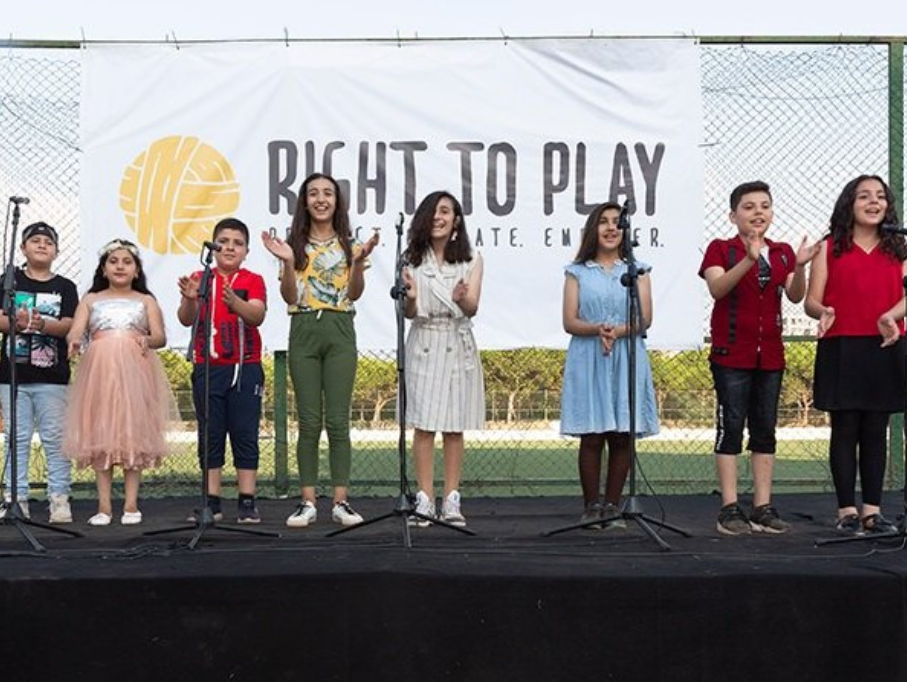Image courtesy of Right To Play.
Children all across the globe are exposed to risks, traumatic events and abuse that often goes unreported. These incidents can manifest in a variety of ways, typically linked to behavioral problems. However, one NGO approached the realities that children are exposed to differently – through play. Right To Play, an international NGO, has been serving at-risk children, refugees and youth from vulnerable communities in Lebanon, since 2006.
Understanding the importance and tangible impact of ‘play’, whether through music, sports, creative play and free play, can be difficult for some. BDD sat with Antoine Karam (AK), Country Director of Right To Play in Lebanon, to discuss transformational programs, common misconceptions and why children need to express their emotions.
BDD: Firstly, let us discuss the common misconceptions when it comes to international NGOs working in Lebanon.
AK: This is a big question and I am happy we are addressing it. There are many misconceptions tied to NGOs and their roles in countries, specifically in Lebanon. The first one I would like to address is that NGOs are here to help, support and alleviate the suffering. Yet, NGOs are not responsible for the issues and situations that society faces. That is the role of the government to address and resolve these issues, and relieve the pain points of the community. NGOs are only here to help.
The second misconception relates to funding. Some people think that the day you register an NGO, the money will starts flowing. Fundraising, for any organization that has tried, is hard work and follows strict rules and regulations, given that donated funds are typically taxpayers’ money. To attract funding, donors need to be convinced about the projects being carried out and the tangible impacts need to be evident. Accountability and transparency when utilizing funds is integral. Accordingly, when grants and funds are received, there are many policies and procedures to ensure transparency and inclusiveness, when it comes to procurement, finance etc. Due to these diligent procedures, things may take time to happen.
BBD: Let’s discuss what Right To Play is doing. What tangible outcomes have you witnessed and do you track the progress?
AK: At Right To Play our mission is clear, we are committed to protect, educate and empower children and youth to rise above adversity through the power of play. In 15 countries worldwide, including Lebanon, we use creative play, free play, games and sports to empower children to learn, to express themselves, to challenge harmful traditions and practices, to protect themselves from disease, to collaborate and resolve conflicts, and to achieve their full potential.
What is integral to understand is that we are dealing with people. Our work seeks to change mentalities, cultures and social norms, and this is a very tough process. For example, one program targeting young females in Tanzania, we wanted to empower them to say no when it comes to unwanted sexual advances. Before the 18-month program, only 13% of the girls believed they can say no to unwanted sex. After program, the figure jumped to 59%. Another example from Pakistan which focused on peer violence in schools, which is a big issue in Pakistan and can reach around 94% in schools. Through our program violence was reduced by 25%.
BDD: How has your experience been in Lebanon?
AK: In Lebanon, we carried out a lot of work, especially after the Beirut blast, given the traumatic nature of the explosion, which impacted millions directly and indirectly. We launched a Music for Social Change program that helped children express their feelings and cope with trauma through music.
Alain, a 15-year-old boy who took part in the music program, could still hear the sounds of the explosion that rattled his family home in Beirut. For months, Alain was terrified that the catastrophe would repeat itself, and it manifested in aggressive outbursts. He couldn’t sleep and was ridden with anxiety. The Music for Social Change program paired coaches with children, to help them heal their traumas through experiential music activities and express their feelings through song. After close follow ups and shifting the approach of the music program to suit Alain’s needs, he was able to communicate his feelings in a calmer manner and his wellbeing improved.
Our work at Right To Play is to peel back the hidden layers that children and the youth hide, to gauge what they are feeling. Through play, we enable children to express their emotions and to instill their hope for the future.
BDD: What would you tell someone looking to make a shift from the corporate world to the developmental sector?
AK: I actually come from a very lengthy corporate career. I have a background in strategy and management consulting from multinational firms. I moved to Beirut in 2014, and setup my own company. I wanted to apply what I had learnt from the corporate world, to the developmental sector. It was a huge shift and it took a long time to transition. What I came to understand is the development sector has its own goals, and this takes time to understand and apply. The shift requires you to unlearn all that you have known, and acquire a new skillset to thrive in this sector.
You can build a very successful career in the humanitarian and development sector, and it is not just about volunteering with a big heart. It has its own career path and trajectory – as in any other sector.
To learn more about Right To Play and its programs in Lebanon, visit: https://www.righttoplay.com/en/countries/lebanon/




